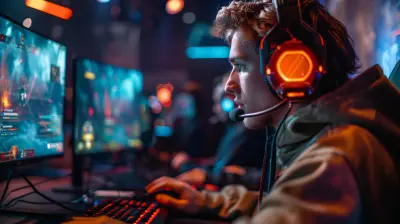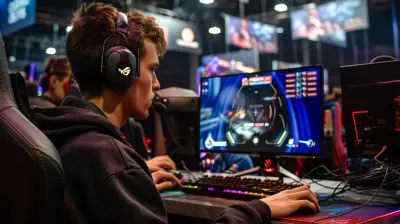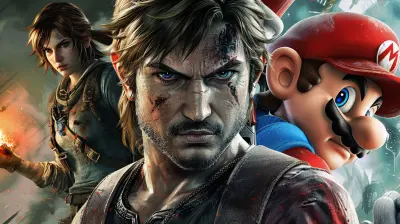The Growing Influence of Coaches in Competitive Esports Teams
21 May 2025
Esports has come a long way from being that niche hobby some of us dabbled in after school. It’s now a global juggernaut, racking up millions of viewers, huge sponsorship deals, and prize pools bigger than my life savings (and probably yours too). But there’s one trend that’s been quietly taking center stage in this high-stakes arena: the role of coaches. Yes, coaches. Just like traditional sports have their Pep Guardiolas and Phil Jacksons, esports teams now rely on mastermind strategists pulling strings behind the scenes. Let’s dive into why coaches have become such a big deal in esports and why their role keeps growing.
A New Chapter in Esports’ Evolution
When you think of competitive esports, chances are you picture the players—those laser-focused pros with god-tier reflexes clicking away at their keyboards or controllers. But here’s the thing: behind every great player or team is often a coach. Coaches weren’t always a thing in esports. In the early days, it was just a bunch of talented gamers figuring things out on their own. But as esports grew into a billion-dollar industry, the pressure to perform skyrocketed, and the game became as much mental as it is mechanical. That’s where coaches came in.Think about it: in traditional sports, athletes have coaches to guide them, analyze opponents, and bring structure to the chaos. Why wouldn’t the same logic apply to esports? Teams started realizing that if they wanted to be at the top of the leaderboard, they needed someone to focus on the "big picture" while players kept their eyes on the prize (or enemy base).
What Exactly Do Esports Coaches Do?
If you’re thinking, “Wait, what’s there to coach in video games?”—you’re seriously underestimating the sheer depth of modern esports. These games are highly strategic, teamwork-heavy, and endlessly complex. Let’s break down what esports coaches actually do:1. Strategy Masters
A coach is essentially the team’s brain. They come up with game-winning strategies, study opponents’ playstyles, and ensure their team is one step ahead. Imagine trying to outsmart your rival in chess... except there are ten pieces moving at lightning speed and the chessboard is a dynamic battlefield. That’s esports. Coaches are the ones dissecting every move and figuring out how to counter it.2. Player Development
Not every player is perfect (even the pros). Coaches are tasked with identifying players’ weak points and turning them into strengths. Maybe one player’s mechanics are great, but their decision-making needs work. Or maybe the team’s synergy feels like a group chat where everyone’s talking but nobody’s listening. Coaches smooth out these kinks and help players level up—not just in-game, but mentally too.3. Mental Health and Resilience
Let’s face it: esports comes with a ton of pressure. Losing one game can cost a team their championship dreams, not to mention the stress of living up to fans’ sky-high expectations. Coaches are often the ones helping players stay cool under pressure, build confidence, and avoid burnout. They’re part motivational speaker, part therapist, and 100% essential.4. Shot Callers
In some teams, the coach acts like an orchestra conductor during practice, managing scrims (practice matches) and making adjustments in real-time. While players focus on executing plays, coaches monitor the overall flow and ensure everything’s clicking. They’re the outside perspective keeping things on track.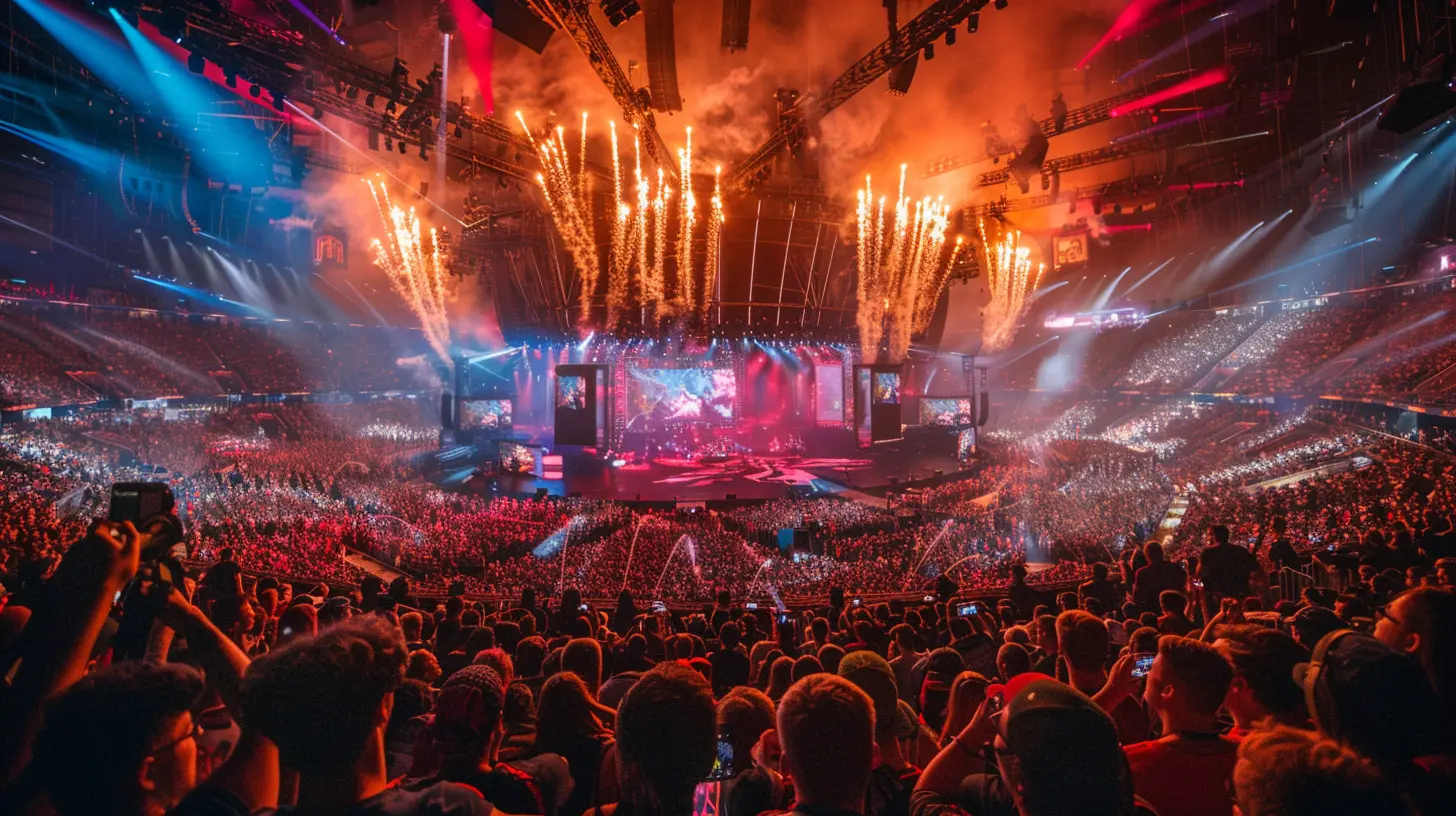
Why Esports Coaching Is Growing So Quickly
Esports coaching hasn’t just grown—it’s exploded. So, what’s behind this surge? Why has every top-tier team suddenly realized they need a coach (or even an entire coaching staff)? Here are a few reasons:1. The Stakes Are Higher Than Ever
As the esports industry grows, so does everything else—the audiences, the money, and the expectations. Players can’t afford to "wing it" anymore. Teams are investing in coaching because even a small edge can mean the difference between a 1st place trophy or going home empty-handed. It’s not just about winning games—it’s about winning championships.2. Games Are Getting More Complex
Gone are the days when esports was just about fast reflexes. Modern titles like League of Legends, Dota 2, and Valorant require insane levels of strategy. It’s like playing four-dimensional chess while juggling. Coaches are essential for navigating these increasingly intricate games and breaking them down into manageable strategies.3. Teams Are Looking for Consistency
Any team can have a "pop-off" moment and win one game. But to consistently dominate tournaments? That takes structure, discipline, and preparation—things that coaches specialize in bringing to the table.4. Globalization of Esports
Esports has gone global. Teams are flying all over the world, facing opponents from vastly different regions with unique playstyles. Coaches are vital for preparing their squads to adapt and overcome.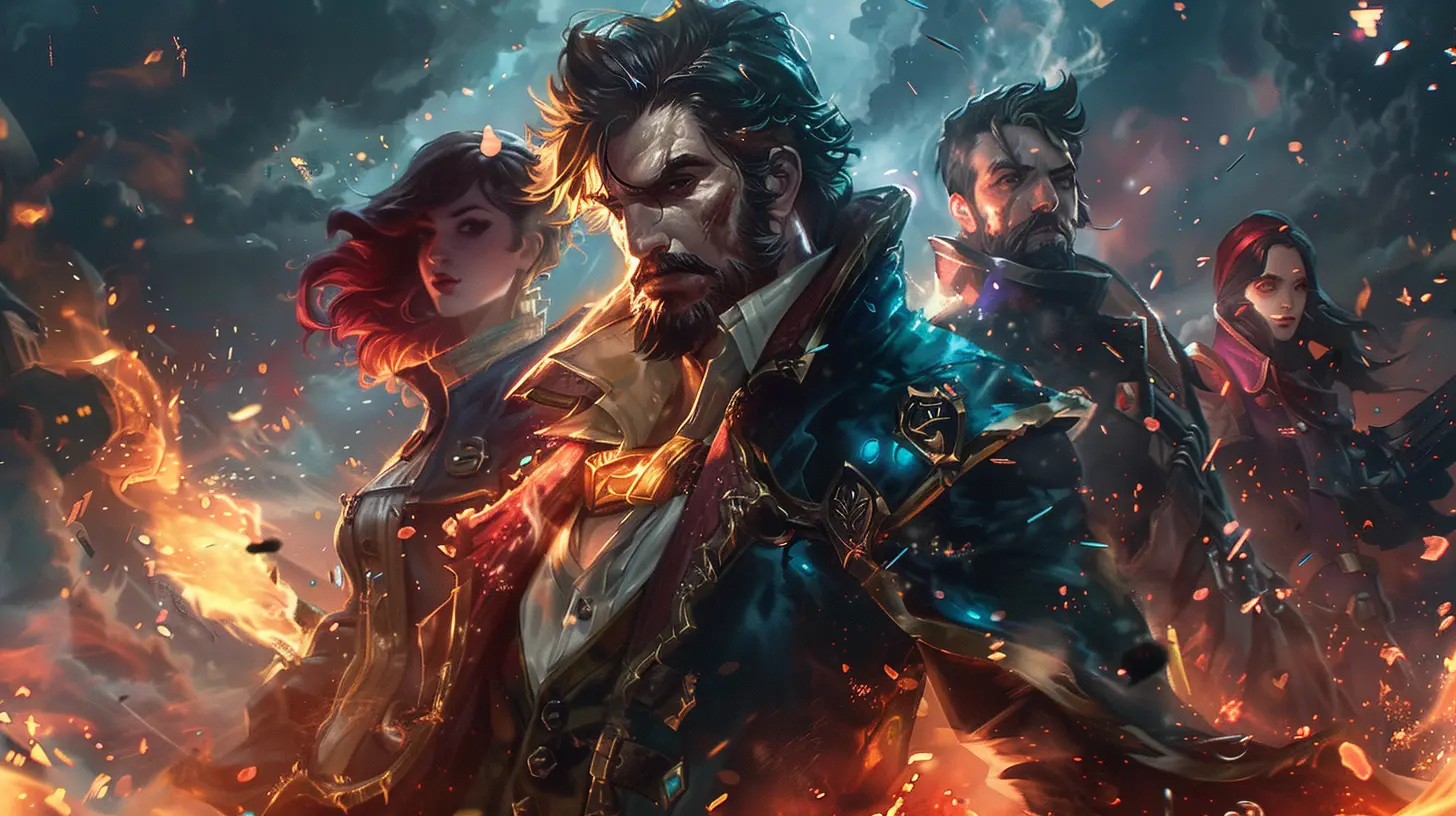
Famous Coaches Who Changed the Game
Coaches may not always be in the spotlight, but a few have managed to leave a lasting impact on the esports world. Let’s give props where they’re due, shall we?1. Kim "kkOma" Jeong-gyun (League of Legends)
Widely regarded as one of the greatest esports coaches ever, kkOma led SK Telecom T1 to multiple World Championships in League of Legends. His ability to adapt strategies and bring out the best in his players turned him into a living legend.2. Seung "Sniipe" Woo-Jin (Overwatch)
As the coach of the Vancouver Titans during their undefeated streak in the Overwatch League, Sniipe proved how crucial coaching can be in team coordination-heavy games.3. Danny "zonic" Sørensen (Counter-Strike: Global Offensive)
Zonic helped Astralis dominate the CS:GO scene for years, using innovative training methods and mental resilience-building to keep his team at the top.The Future of Esports Coaching
So, what’s next for coaches in esports? Well, if the current trajectory is anything to go by, the role of coaches will only grow more significant. Here are some trends to watch:1. Specialized Coaching Staff
Just like in traditional sports, we’re seeing esports teams hire multiple coaches with specialized roles—head coaches, strategy coaches, mental health coaches, even nutritionists. This shift toward building a well-rounded support system is a game-changer (literally).2. Technology Integration
From analyzing in-game data to using AI for opponent predictions, technology will continue to empower coaches. Don’t be surprised if we see teams using tools that look like they belong in a NASA control room.3. Grassroots Development
Coaching isn’t just for the pros anymore. As esports develops at the grassroots level, coaches are becoming mentors for aspiring gamers, grooming the next generation of talent.Final Thoughts
The growing influence of coaches in esports isn’t just a trend; it’s a testament to how much the industry has evolved. Coaches are the glue that holds teams together, the architects behind every game-winning strategy, and the unsung heroes of competitive gaming. As esports continues to capture the world’s imagination, you can bet that the role of coaches will remain front and center, shaping the future of this electrifying industry.So, next time you watch your favorite team clinch a last-minute victory, take a moment to think about the coach in the background. Chances are, they’re the secret sauce behind the success.
all images in this post were generated using AI tools
Category:
Competitive GamingAuthor:

Luke Baker
Discussion
rate this article
3 comments
Barbara McFee
Coaches in esports are the unsung heroes, shaping strategies and fostering teamwork. Their influence not only enhances player performance but also elevates the entire competitive scene, proving that behind every great player is an even greater coach!
May 31, 2025 at 3:45 AM

Luke Baker
Absolutely! Coaches play a pivotal role in esports, driving strategy and teamwork, and their impact is crucial in elevating both players and the competitive landscape.
Korian McAllister
Intriguing insights! The rise of coaches in esports highlights the strategic depth of competitive gaming. I'm curious about how their influence shapes team dynamics and performance. It’s fascinating to see traditional sports strategies being adapted in this digital arena!
May 26, 2025 at 2:49 AM

Luke Baker
Thank you! Coaches indeed play a crucial role in enhancing team dynamics and performance, adapting traditional strategies to the unique challenges of esports. It's an exciting evolution in the competitive landscape!
Blaze Hernandez
Great article! It’s fascinating to see how coaches are becoming vital in esports, much like in traditional sports. Their strategies and support can truly elevate a team's performance. Can’t wait to see how this evolves! 🎮✨
May 21, 2025 at 3:13 AM

Luke Baker
Thank you! I’m glad you found it fascinating. Coaches are indeed transforming esports, and it will be exciting to see their impact grow! 🎮✨

